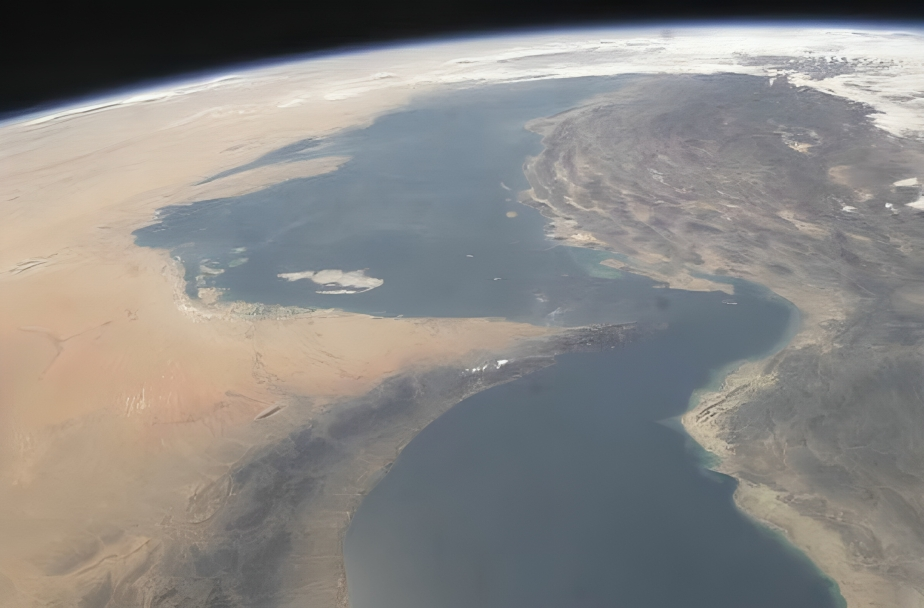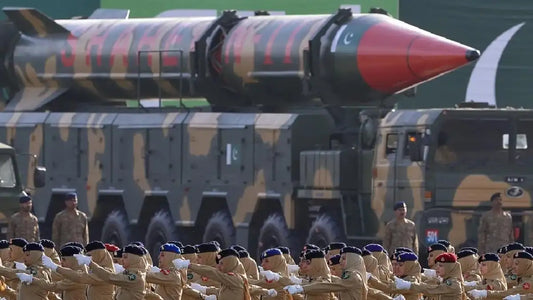Potential Impact of Strait of Hormuz Closure on India's Energy Security and Economy

In response to recent U.S. airstrikes on three Iranian nuclear sites, Iran's Parliament has sanctioned a proposal to shut down the Strait of Hormuz, a key passage for global oil transit. This development signifies a perilous escalation in the already volatile geopolitical climate in West Asia. For India, which heavily depends on energy imports from the Gulf, the potential closure of this maritime artery presents significant risks concerning economic stability, energy security, and regional strategy.
Also Read: Iranian Parliament Approves Measure to Close Strait of Hormuz After U.S. Strikes
What Is the Strait of Hormuz and Why It Matters
The Strait of Hormuz, a narrow waterway between Iran and Oman, links the Persian Gulf with the Arabian Sea. It is a critical channel for energy transportation globally, accountable for approximately 20-30% of the world's oil exports and over one-third of liquefied natural gas (LNG) shipments. Any interruption in this passage has direct implications for energy-intensive economies, predominantly in Asia.

India’s Energy Dependence on the Gulf
India relies on imports for over 80% of its crude oil, with nearly two-thirds sourced from the Gulf nations, including Iraq, Saudi Arabia, the UAE, Kuwait, and Iran. A notable share of these imports passes through the Strait of Hormuz. For instance, Qatar provides about 39% of India's LNG imports based on long-term agreements. Additionally, the route facilitates transportation of petrochemicals, fertilizers like urea, and other energy-related goods, which are vital to India's industrial framework and its linkage to Gulf supply chains.
The Economic Fallout
Should the Strait be closed, a surge in global crude oil prices is inevitable, thus exerting immediate inflationary pressures on India. This would have a cascading effect on key sectors including fuel, transport, manufacturing, aviation, and agriculture, consequently increasing input costs and placing strain on the fiscal deficit and current account balance. Although India has leveraged lower oil prices recently and bolstered its strategic reserves, any prolonged disruption would challenge its economic resilience, especially amid ongoing post-COVID recovery and global trade uncertainties.
Strategic and Naval Concerns
India maintains a formidable naval presence in the Arabian Sea and the Gulf of Aden, engaging in mission-based deployments to safeguard its energy pathways. The Indian Navy, through initiatives like Operation Sankalp, ensures maritime security and can evacuate Indian citizens if necessary. A shutdown of the Strait would complicate these operations, threaten India's maritime trade, and strain both naval and diplomatic capabilities.
Impact on Indian Diaspora and Trade
With more than 9 million Indians living in the Gulf and annual remittances exceeding $40 billion, any regional instability could have both economic and humanitarian repercussions. India's trade with Gulf Cooperation Council (GCC) countries amounts to over $150 billion annually. Disruptions in maritime logistics would hinder trade flows, impact small and medium exporters, and affect the welfare of Indian expatriates.
India’s Diplomatic Balancing Act
Historically, India has navigated between its relationships with Iran, the U.S., Israel, and the Arab states through a policy of strategic autonomy. In past regional conflicts, such as following the 2020 killing of General Qasem Soleimani, India maintained a neutral stance. A similar approach appears likely now, with India focusing on discreet diplomacy, advocating for restraint, and striving to protect its strategic and economic interests without aligning with any party.
Oil Alternatives and Strategic Buffers
India has been proactive in diversifying its oil sources, enhancing imports from West Africa, the U.S., and Russia. Its strategic petroleum reserves (SPR), managed by the Indian Strategic Petroleum Reserves Ltd. (ISPRL), provide a buffer that can cover the country's needs for several weeks during short-term disruptions. Despite progress in transitioning to renewable energy, dependency on fossil fuels remains high, particularly in the industrial and transport sectors.
Global Domino Effects and Indo-Pacific Fallout
The closure of the Strait of Hormuz would reverberate beyond India, disrupting global markets. Major energy consumers like China, Japan, and South Korea would face supply shocks. Escalated maritime insurance premiums, shipping delays, and increased logistics costs would exacerbate challenges, affecting global supply chains and posing broader risks to the Indo-Pacific strategic framework.
Conclusion
While India may not be directly embroiled in the U.S.-Iran conflict, the potential closure of the Strait of Hormuz poses a significant threat to its energy supplies, economic stability, and strategic planning. This situation underscores the need for India to:
- Strengthen its strategic petroleum reserves
- Accelerate its energy diversification and green transition
- Deepen regional cooperation on maritime security
- Uphold balanced diplomacy amid intensifying global rivalries
Also Read: India Assures Fuel Supply Stability Amid Iran’s Strait of Hormuz Closure Threat
As tensions simmer in the Gulf, India must not only address the current crisis but also fortify its long-term resilience in a world where energy and geopolitical dynamics are increasingly interlinked.



















